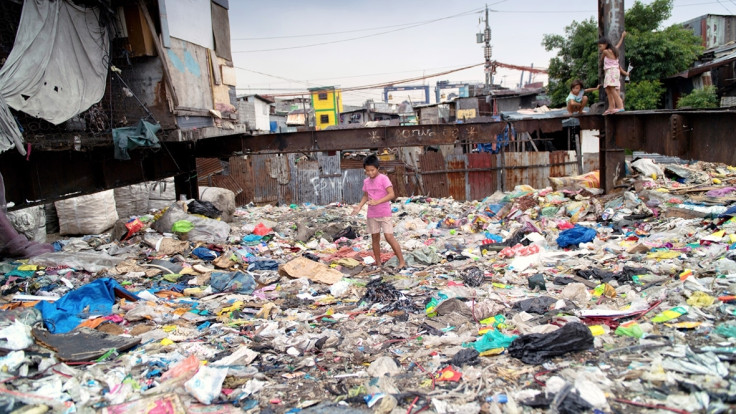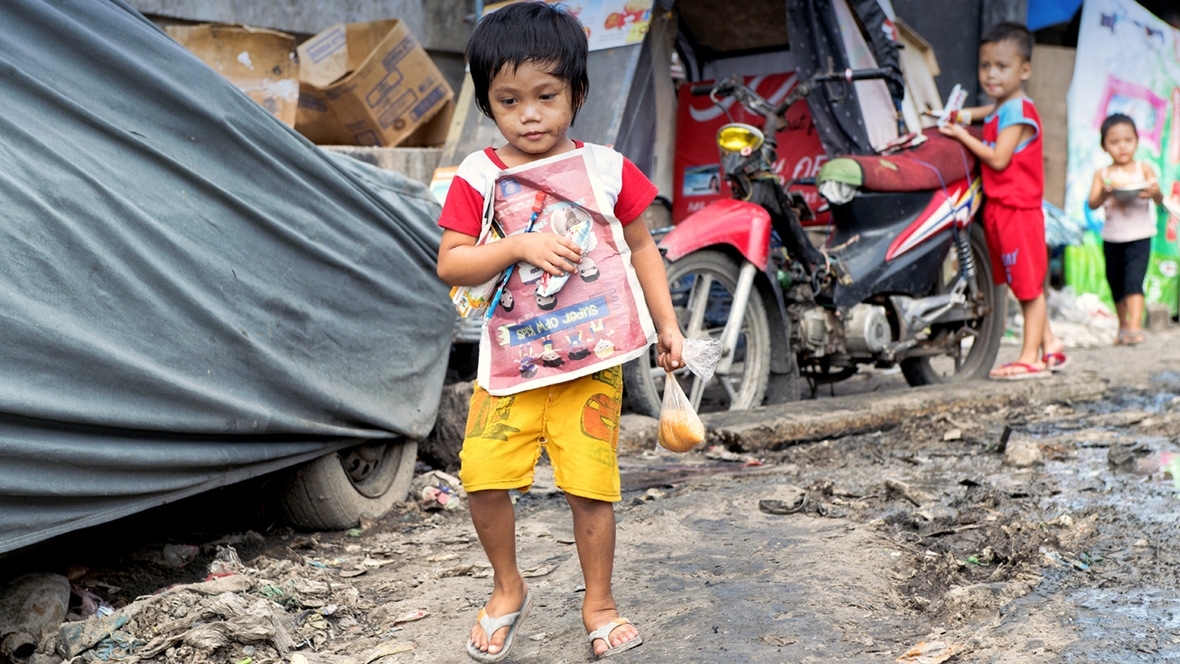A Life in Happyland: A disturbing insight into the daily lives of children in Manila's worst slum
Australian photojournalist Ted McDonnell documents life in Happyland, a ramshackle collection of shelters built around a rubbish dump outside Manila.
Over the last two years, Western media have focused on Philippines President Rodrigo Duterte's brutal war on drugs. However, most Filipinos are happy with the efforts of their President. They believe the streets of Manila are becoming safer, and ultimately they have greater issues facing their daily lives.
More than 35,000 children under the age of five die every year of malnutrition across the Philippines and over 100,000 young people and adults die from preventable diseases. "Deaths from disease and malnutrition far outweigh the so-called extra-judicial shootings of people involved in drugs," says one NGO.
Just a short drive from Manila's city centre is the slum area of Tondo where more than 600,000 people live in poverty. Australian photojournalist Ted McDonnell spent some time in the most deprived section of the slum. Known as Happyland, the ramshackle collection of shelters built around a rubbish dump is home to more than 12,000 people.

"Happyland's residents daily wade through rubbish looking for anything of value," says McDonnell. "Tons of chicken scraps are collected from rubbish bins in takeaways, then recycled by boiling. It is called 'pagpag' and sold to hungry families in the slums for a few pesos."
The stench, heat, humidity and storms and a lack of running water create a toxic combination of disease, but inadequate government health services mean the people of Tondo's worst slum just get sicker and sicker, says McDonnell. His book A Life in Happyland is filled with disturbing images of the daily misery faced by children living in the putrid slum.




Founder of US non-profit Kilos Bayanihan, Alan Niewald, says Happyland has become a multi-generational trap. "Most children do not attend school because the parents have to choose whether to feed their children or send them to school then possibly not have enough food to feed them. It's a tough decision," he says. Most of the residents are usually from the provinces and come to Manila to try and find a better life, but end up homeless."
Niewald says the cycle of poverty is hard to break without opportunity. "Imagine a child being born to a mother who is, say, 15 years old who lives in the slums and has no education. She does not have enough money to send them to school. That child gets pregnant at 13 or 14 years old. She is now in the same situation as her mother was. The cycle just keeps repeating itself."



Niewald says that the Duterte government has turned its back on those that need the most help. "I don't see anything being done by Duterte to change anything in his first year," he says.
On the first anniversary of his election landslide victory, Duterte pledged every Filipino will live a comfortable life. "Try telling that to those who live in the daily nightmare of Happyland," says McDonnell.










Photojournalist Ted McDonnell will launch the hardcover version of "A Life in Happyland" in Manila in December. An Ebook version of his book is available at the Apple store. All proceeds go to the NGOs working to help families in Happyland. He is represented by SIPA Press in France.






















